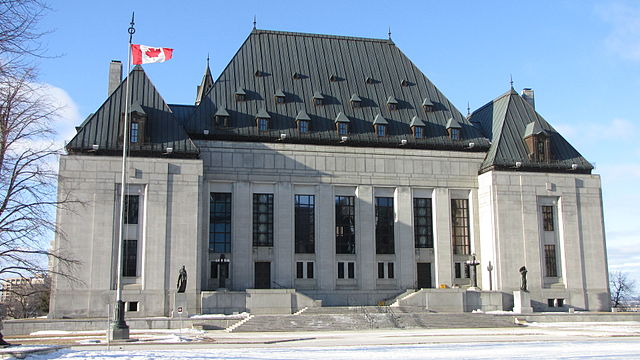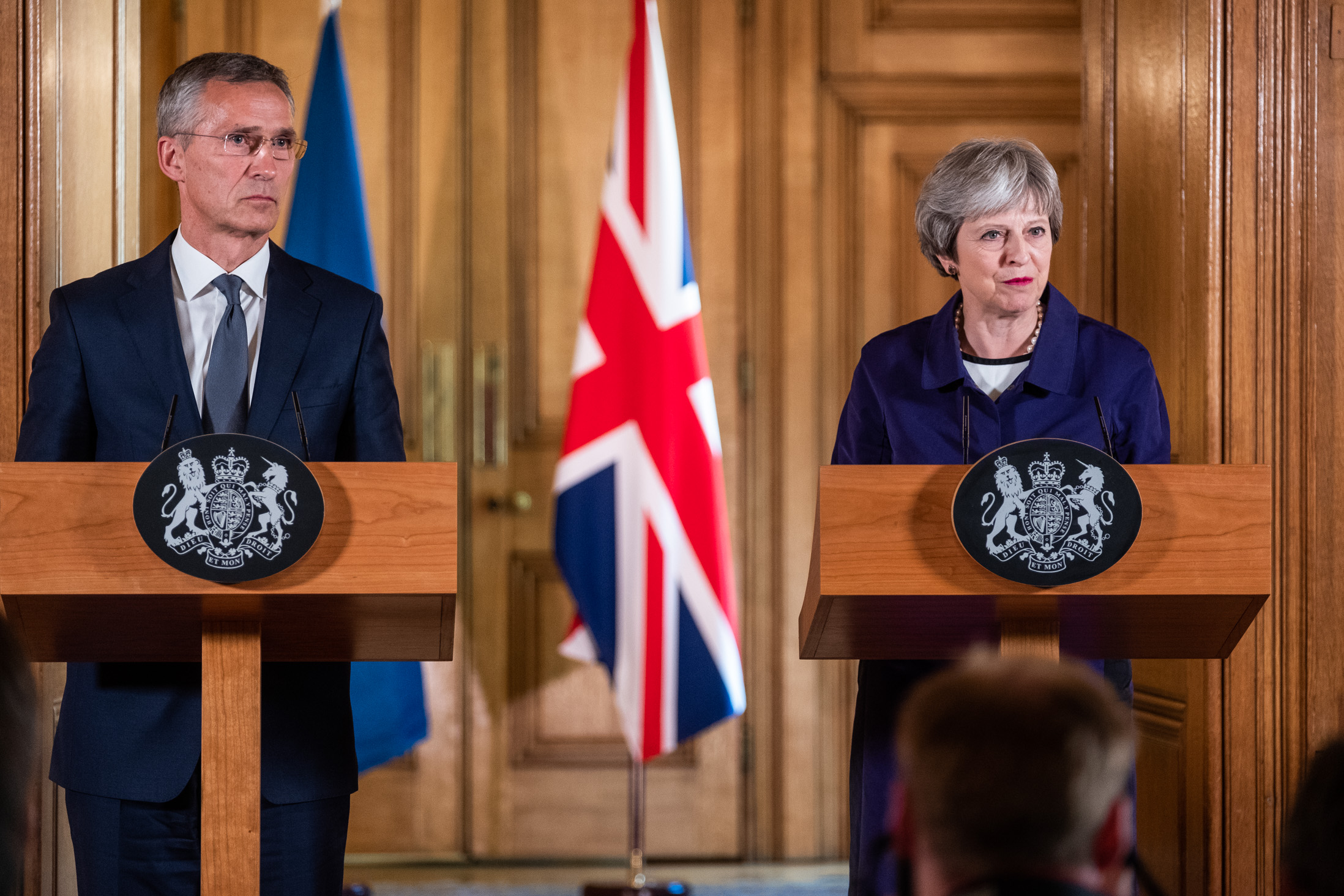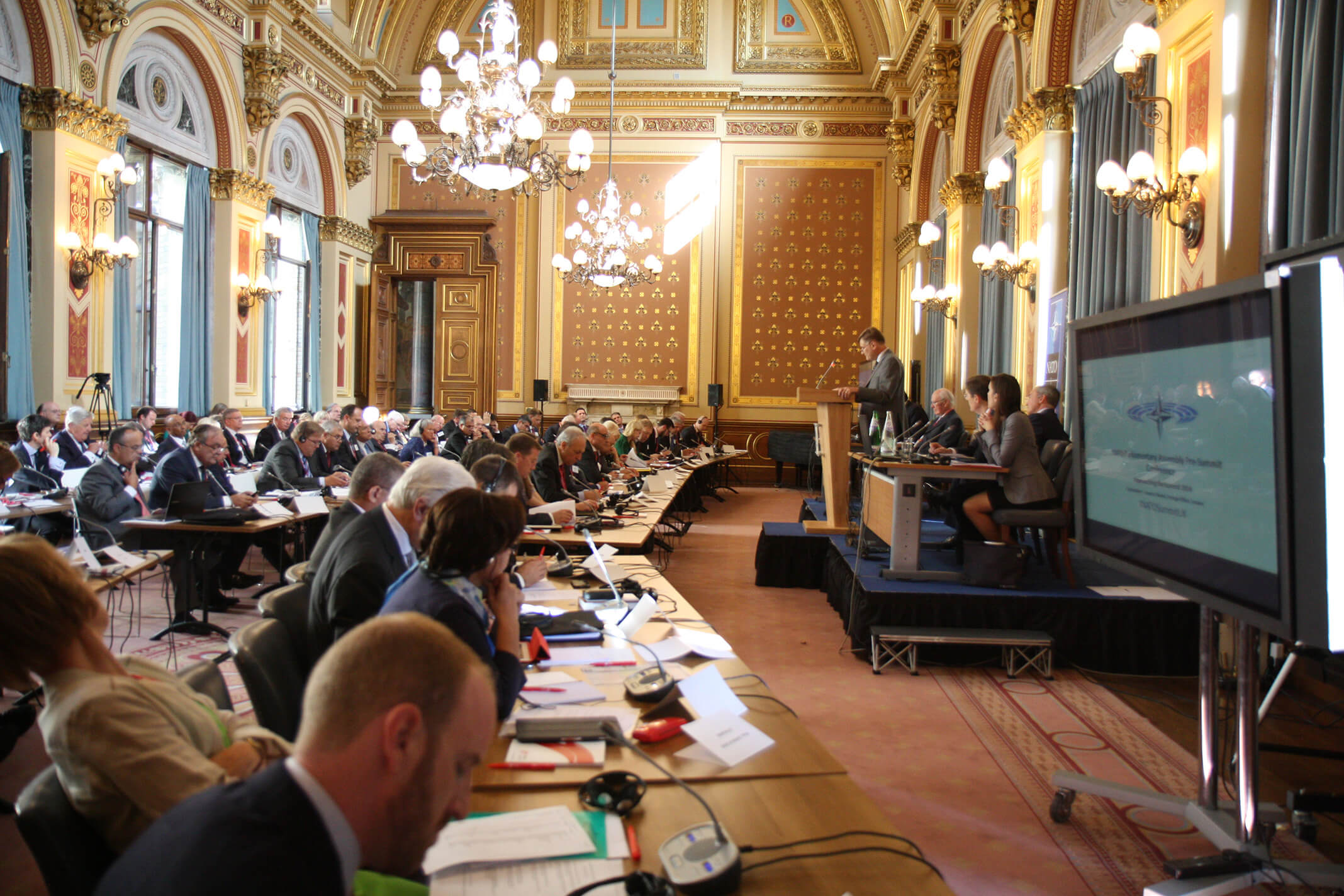While the Trudeau government recently reiterated its support for NATO in light of an ongoing Defence Review and unwillingness to increase defence spending. In the current situation, partners in Eastern Europe and the Baltics, are wondering whether or not Canada is a reliable partner in a time when they have particularly reached out to their North American ally for fortification of their borders.
Last month, optimism was abundant after Prime Minister Trudeau made public reaffirmations of Canada’s obligations to the North Atlantic military alliance. The affirmation was a textbook example of public relations and diplomatic timing, as it occurred during an official visit to Canada by Polish President Andrzej Duda. During his visit, Duda particularly requested extra Canadian troops to be stationed in Poland as protection against perceived Russian aggression in Eastern Europe. The Polish president went on to personally express his thanks for Canadian military contributions in Poland by making a stop at Garrison Petawawa. It was apparent that a fellow NATO member in a strategic geopolitical location pursued stronger relations with Canada. This should have been a positive development for the Trudeau government as it illustrated Canadian foreign and defence ministries were held in high esteem by global partners.
No decision has yet been made by the Department of National Defence on whether or not to allocate extra troops to Poland. The elusiveness of a final decision remains, as the Liberal government has stated they are still in the process of considering all available options. Conversely, representatives from Eastern European countries have been quoted as saying that Canada is sending mixed messages by one day saying they will fulfill requests for further military aid, and then giving negative signals the next. The overall and most troubling aspect of this situation is not whether Canada allocates an additional 1000 troops to Poland, or answers the call to assist its Lithuanian counterparts, but rather that the Canadian government continues to avoid committing to a perceptible defence and foreign policy.
Mixed messages to global partners exemplify a lack of decisive leadership and a clear vision of Canada’s role in the world. Decisions concerning sending troops abroad are of substantial undertaking, and should be considered carefully. If this is the case, diplomats and representatives of the Canadian Armed Forces should not express a willingness to engage one way or the other until the Department of Defence is absolutely sure of its next step. Canada could resolve that it is not prudent policy to increase military engagement in a NATO-led operation that could result in further aggravating Russian interests and that would be acceptable. On the other hand, the Trudeau government could openly accept its NATO responsibilities, staunchly stand with its allies and commit the requested number of Canadian troops to Eastern Europe. The problem is that Canada has been non-committal in a time when it has been accused of not taking questions of international security and defence earnestly.
NATO membership may be recognized for its far-reaching geography, but the fact remains that many allies are smaller nations without the capacity to engage in homeland security, and multiple missions at once. Simply put, many NATO member states do not have the adequate resources and financing to participate fully in another ongoing operation. Currently, diverse contingents are involved in operations spanning from Afghanistan, to Kosovo, to the Mediterranean and to Africa. Larger nations, such as the United States, the United Kingdom and Germany are not only engaged in the operations, but they have stated their intent to form the foundation of the 4000-strong force in Eastern Europe and the Baltics. Canada has been pinpointed as the last integral partner for troop contributions in the region, and the one capable state with available military assets. It may have been a lack of strategic planning for Canada to either overlook or dismiss this available opening during the early negotiations surrounding the composition of the new Eastern initiative. Trudeau’s expression of support for the Eastern flank during his meetings with President Duda, now has to align with responsibilities of being a reliable NATO partner.
Canada cannot state its re-emergence on the world stage, and then take a step back when allies require Canadian expertise and military commitment. There is no doubt that Canada must make pragmatic decisions where its armed forces are concerned, but it must consider the messages it sends out to the global community at the same time. Statements in support of NATO and engagement in Eastern Europe are not only photo opportunities and diplomatic occasions but declarations on where Canada stands on important geopolitical issues. Mixed messages show the Canadian government is willing to placate its associates, but hesitant to assert its desired leadership globally, leading to accusations of being all talk and reluctant action. The Polish situation is simply another example of this phenomenon.
Photo: Supreme Court of Canada, Ottawa, from Wikimedia Commons. Licensed under CC BY 3.0.
Disclaimer: Any views or opinions expressed in articles are solely those of the authors and do not necessarily represent the views of the NATO Association of Canada.




